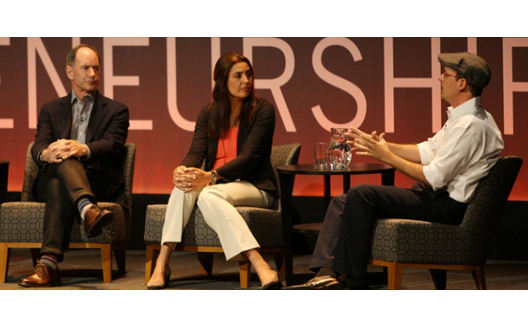Lessons in Social Entrepreneurship from the Skoll World Forum

 Last week, I attended the Skoll World Forum on
Social Entrepreneurship in Oxford, a real celebration of change
makers, of humanity, of development, of citizens and citizenship,
of the power of empowerment, of the impact of action and purpose,
of people and their planet. Imagine a room filled with more than
1000 people filled with passion for this world and for
humanity!
Last week, I attended the Skoll World Forum on
Social Entrepreneurship in Oxford, a real celebration of change
makers, of humanity, of development, of citizens and citizenship,
of the power of empowerment, of the impact of action and purpose,
of people and their planet. Imagine a room filled with more than
1000 people filled with passion for this world and for
humanity!
There were many lessons and inspiring stories, leaving one with a nagging feeling that no matter how much you do, so much more can be done, so many partnerships can be made, and it is fundamentally our responsibility to connect with people around us and reach out.
Some of the key lessons that I learned included:
- Solutions to big problems can be in the simplest yet most unexpected of places. One social entrepreneur's quest to fight one school high dropout rates in India was met with many difficulties and little progress. Until he further engaged with students, and found that the solution to high school dropout rates in that area was not necessarily in improving the school or curriculum (although that is desperately needed!) but in buying bicycles for the students because they couldn't afford transportation!
- A comprehensive approach is the way to go. A successful school in Chile that has 0 dropouts, where the majority of students go to college amended their curriculum to reflect their vision: in addition to traditional subjects such as math, sciences, and literature, the students now study gender equality, diversity, empathy and compassion, meditation, sustainability in addition to other value-oriented subjects. If you want real change and long term impact, invest in values!
- Disruption: A recurring theme in every talk, panel, and meeting was disruption, meaning disrupting a system, disrupting a practice, or disrupting a reality. From Hans Rosling re-naming the "developing world" to "The World" to Eve Ensler's continuous disruptions to violence against women by creating a movement using her play and further disrupting the definition of how NGOs operate.
Other forms of disruption were clearly articulated by social entrepreneurs questioning educational systems and disrupting existing systems with their solutions, and by asking, what defines education? Is it education or knowledge? How it is delivered- at school or online? Is it inclusive or are many left behind? And by whom- who should write our curriculums? should it be a participatory approach? And finally, how can students stay interested in schools when government officials are the only ones deciding what is fun and interesting in a classroom? Disruption is what makes way for new creative learning and the only way to break from traditional systems that lead us to where we are today.
- Technology is a tool, but it is people that make it really happen. This might seem like an obvious one, but with the amount of technology companies popping up everyday (here in Jordan I'm not complaining), social entrepreneurship can now benefit more broadly from technology. Technology for social entrepreneurs can be used for outreach and solutions; it was clear at Skoll that some of these entrepreneurs always keep their eyes on the purpose and provide society with opportunities (and basic rights to education, food, shelter and freedom). The level of human awareness was intense and tangible.
- Social enterprise does not mean not-for-profit. On the contrary, many social entrepreneurs have for-profit ventures; they generate profits and their economic, social and environmental impacts are part and parcel of the products and services they provide. This not only ensures their sustainability as ventures, but makes us realize that the private sector remains an untapped resource when it comes to generating social change.
- Every corporation is a social enterprise. Every company is a social enterprise when you consider its contribution to society through its economic impact and the jobs it creates. Beyond that, some companies choose a more active approach by adopting certain "responsible" environmental and social practices, through which they further contribute to the development of their societies and to their planet by investing in their employees, in communities, in green initiatives. Even further, some companies are emerging as new creatures of change, embedding social and environmental impact in their model, products and services and give way to new business models; which if humanity is lucky enough, will prove to be the birth of a new sustainable world system.
I, for one, will remain hungry to meet more of these inspiring emerging entrepreneurs; and I am very thankful that I belong to an organization led by a visionary leader, Fadi Ghandour, who not only is a social entrepreneur himself but a pioneer in disruption; founding ARAMEX, leveraging its network and infrastructure and enabling every single one of us to be social entrepreneurs, contributing to our communities and our planet.


